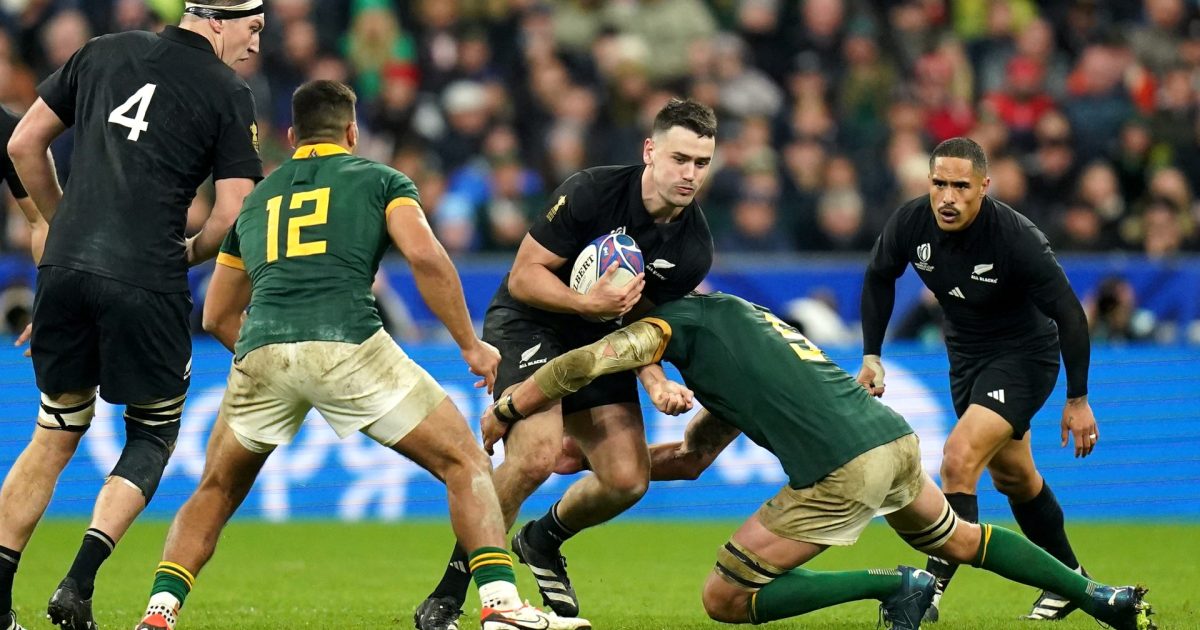Results published from 'trail-blazing research' on the safety of rugby

The results have been published from the largest ever studies into the forces experienced by rugby players in-game using smart mouthguard technology, providing greater insights into the safety of rugby.
A two-year study was conducted by the Otago Community Head Impact Detection study (ORCHID) alongside World Rugby, Prevent Biometrics, New Zealand Rugby, Otago Rugby and the University of Otago, using smart mouthguard technology, supplied by Prevent Biometrics. The study measured the g-forces experienced on 300 players in 17,000 separate head acceleration events in community rugby, from U13 rugby to senior rugby.
The results found that 86 per cent of the forces measured are the same as or less than those experienced in running, jumping or skipping, with 94 per cent of forces being lower than those previously measured on people riding a rollercoaster. Furthermore, the large majority of the highest measured forces were a result of poor technique.
The Elite Extension of the ORCHID study, in partnership with Ulster University and Premiership Rugby, also found that most contact events in elite rugby do not result in any significant force to the head. On top of that, low, medium and high force events occur most commonly in tackles and carries, followed by rucks, and are experienced more frequently in forwards than backs in both men’s and women’s rugby.
Smarth mouthguards were used in this year’s WXV and will be part of the Head Injury Assessment (HIA) protocols from January 2024.
World Rugby Chairman Sir Bill Beaumont said: “Using the latest research and technology is at the heart of our six point plan to make rugby the most progressive sport in the world on player welfare. These studies are concrete proof that World Rugby us putting our time, energy and efforts in to back up our words and the insights gained are already helping us make evidence-led moves to make the sport even safer, we will never stand still on player welfare.
“I’d like to thank the players all across the world who took part in the study, what they have helped to shed light on will be invaluable in advancing player welfare in rugby at all levels. Using this data we can say with some certainty that community and elite level rugby are very much the same game, but played very differently.”
World Rugby Chief Medical Officer Dr Eanna Falvey said: “It is encouraging to see that alongside our recent research into the health benefits of rugby, we now have the data that offers a more complete picture of what it is like to play our sport. These studies gives us the ability like never before to understand the causes of head impacts and accelerations and we will leave no stone unturned, making whatever changes may be needed to reduce large forces to the head in our game.”












































































Why is jumping for a catch never mentioned - it never used to be such a big part of the game. So many dangerous incidents occur as a result of players being taken out in the air. Why not simply ban any jumping other than in the lineout.
This is definitely progress, would love to see more detail and the raw data.
For example, how did they determine “poor technique”.
Some of the statements are very generic: low, medium and high force events in tackles and carries. Well, yes. Seems rather obvious.
“…low, medium and high force events occur most commonly in tackles and carries, followed by rucks…”
No stone left unturned.
For all the attention that Rugby gets in regards to concussion protocols and calls to make it safer I still here nothing about boxing where the aim of the sport is to knock someone out.
If H&S experts insist that rugby lowers tackle height to mitigate head to head contact surely that means boxing should be banned?
Hard game ,yet very dangerous
It is the physical unnecessary brutal confrontational elements that need to be penalised, and heavily. This should have an impact on technique and training.
Mid air tackles, shoulder to head (within reason as sometimes it can be avoided in which mitigation has to kick in), head highs, spearing, collaring and deliberate dumping to the ground with force are all unnecessary.
People have been getting destroyed on rugby pitches for decades and as much as I love a good hit, some of these are just unacceptable.
Can I ask about the other 6%? Quick calculation suggests this is something like three per player over the (very short) time of the study.
That doesn't sound too good to me.
Very encouraging. Exciting as it shows our sport has made great strides in making the game safer.